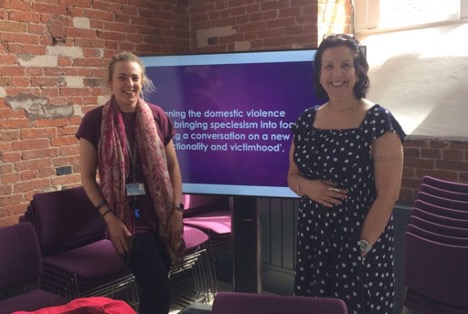Academics are calling for policymakers to consider companion animals in domestic violence cases after their research found links between coercive control and abuse of pets.
Associate Professor Di Turgoose and Dr Ruth McKie of De Montfort University Leicester (DMU) say abusers often use family pets as leverage in the torment of their victims, threatening to harm or kill them should their victims leave.

Di and Ruth will talk about their work in a free online talk on Monday, December 7 hosted by DMU’s Prison and Probation Research Hub. You can register for the
event here Although there are existing animal cruelty laws and prosecutions by the RSPCA, both Di and Ruth believe policymakers need to consider animal abuse as part of the pattern of coercive behaviour when perpetrators are charged with domestic violence offences.
Di said: “Many victims feel forced to stay with coercive partners because they are worried their pets could be attacked.
“In the UK, some 50% of households in the UK have pets but this is still an area in which there is little discussion. We were determined to call this type of abuse out and set about examining what was at play when pet abuse is used as a coercive tool by perpetrators of domestic violence and abuse.
“We argue that we have to look at animals as victims of domestic violence. It’s part of a pattern of abuse where animals can also be negatively impacted by domestic violence."
 (Image courtesy of Refuge4Pets)
(Image courtesy of Refuge4Pets)Ruth added: "For us, this is the start of a transformative research and practice agenda with impacts that can determine policy in the field of Domestic Violence and and animal abuse.”
Their focus is on domestic violence where abusers are coercively controlling – a pattern of abuse behaviour recently recognised as a criminal offence in the 2015 Serious Offences Act – and abuse of family pets and animals.
The pair share an office in the Community and Criminal Justice Division at DMU, and started researching this area two years ago, after a conversation was sparked by a campaign run by Women’s Aid on the links between animal harm and domestic abuse.
Di’s background in qualitative research combined with Ruth’s in quantitative methods means they can draw upon a variety of methods.
Already people from around the world have signed up to their talk which will run through the research they have done so far and look at future work. To sign up,
click here.
Posted on Thursday 3 December 2020